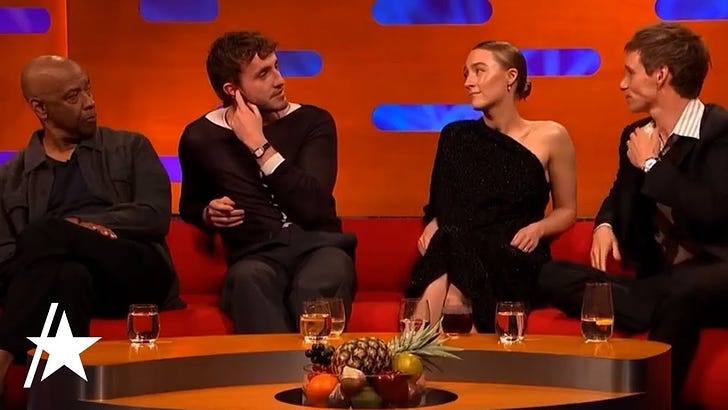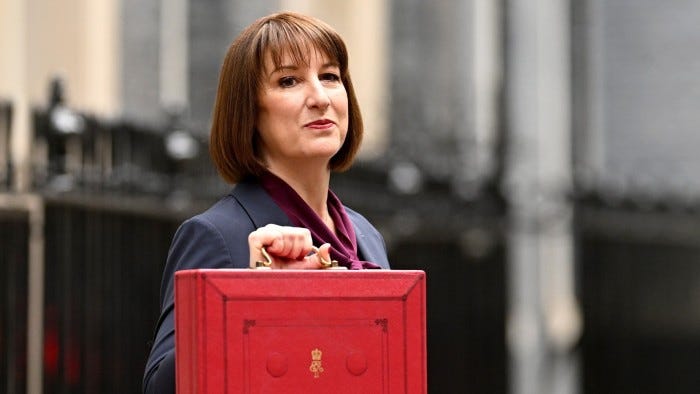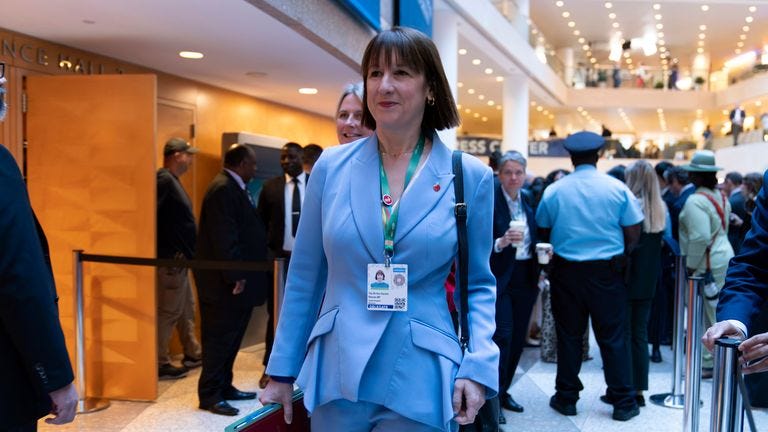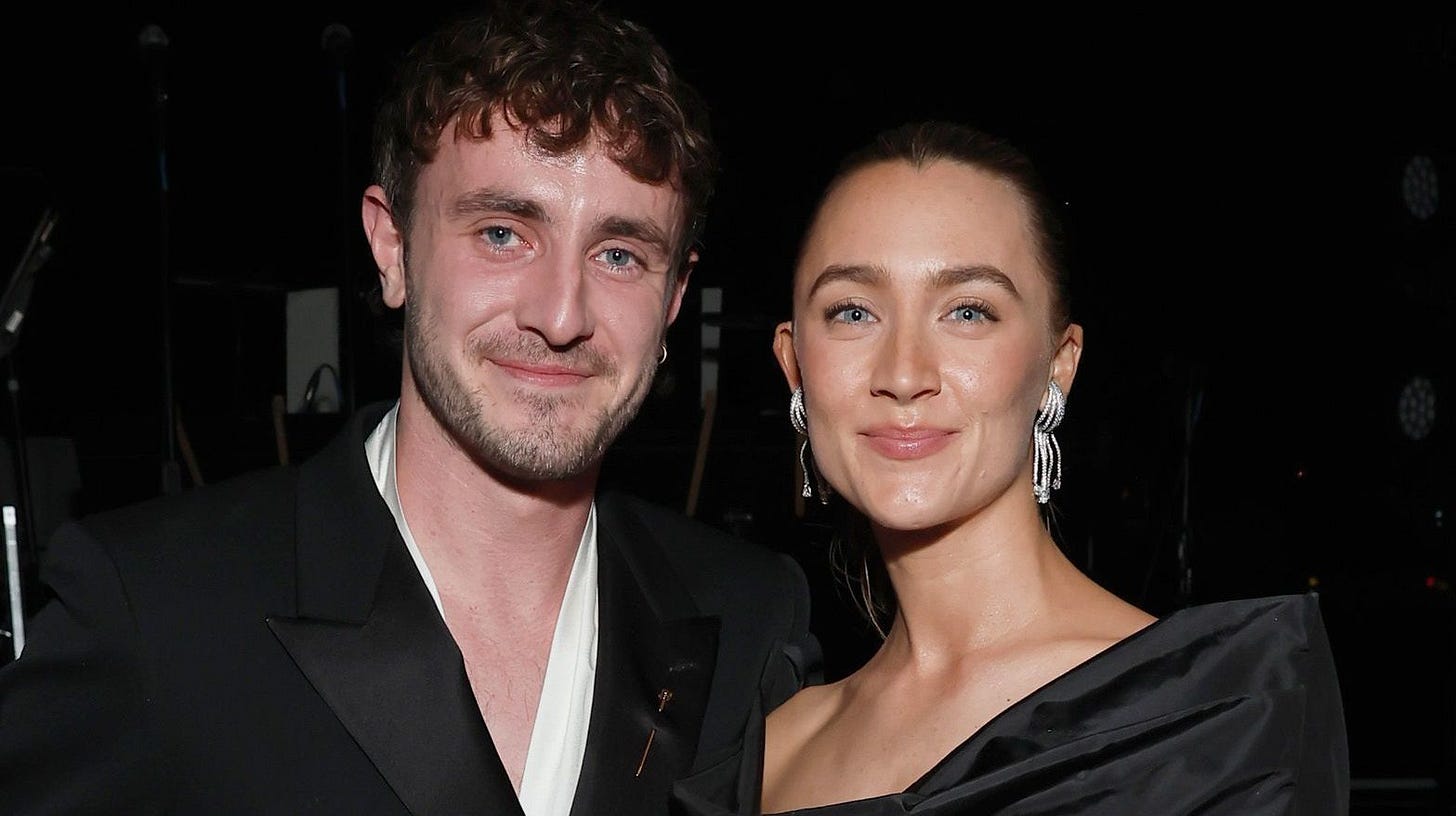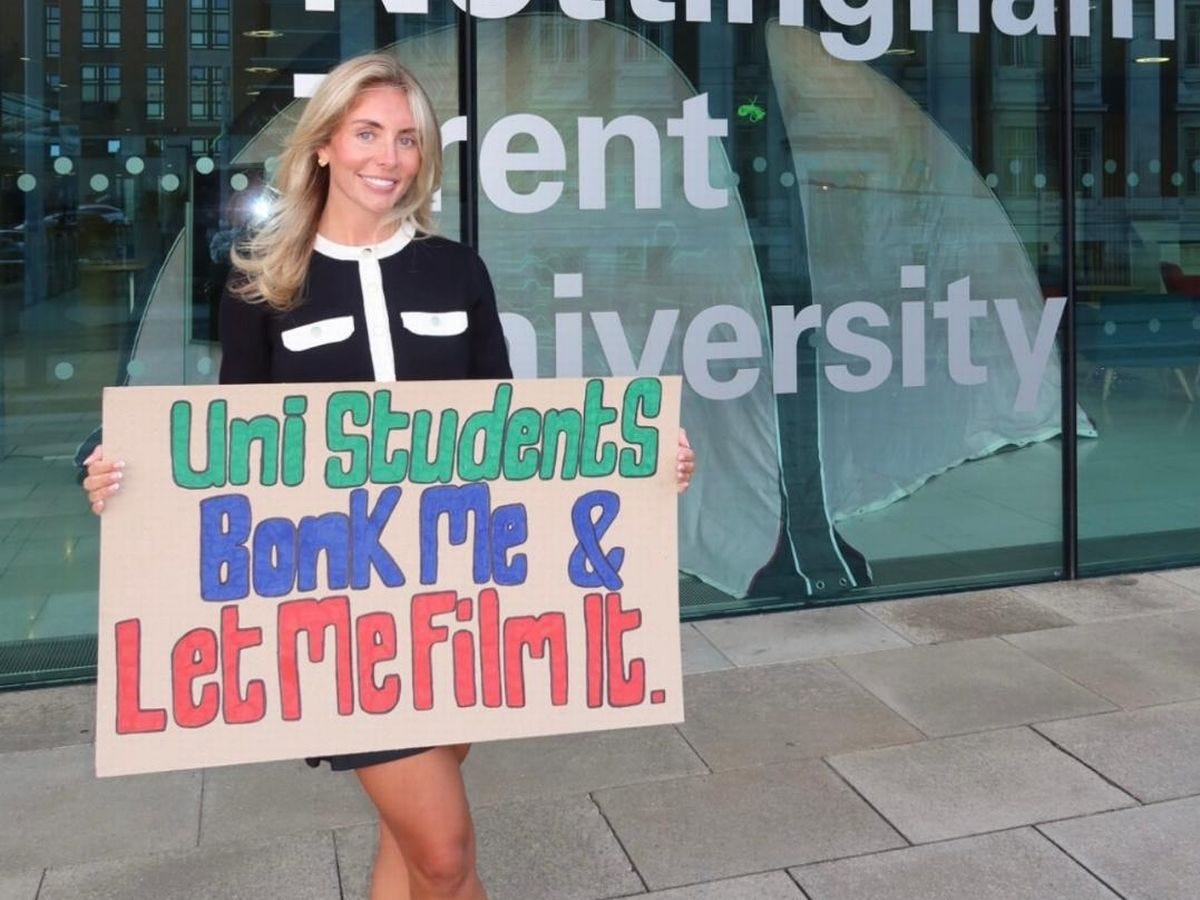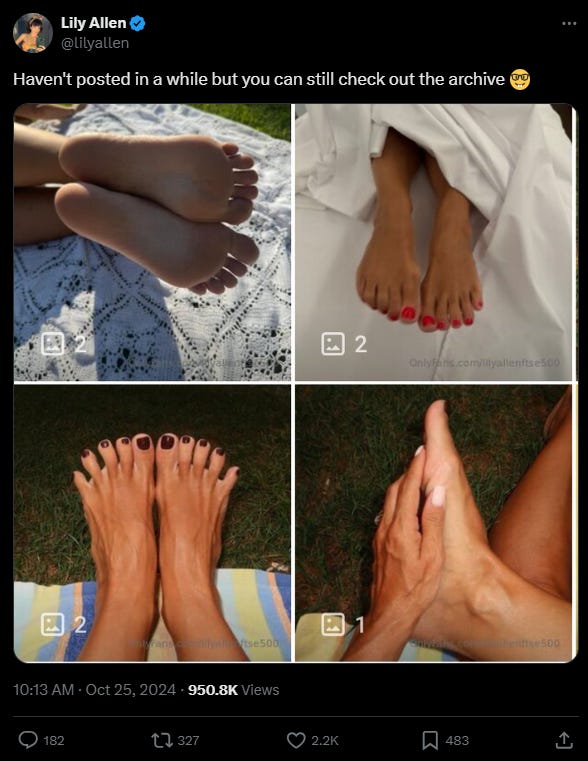Borkowski Media Trends: Mark Borkowski on the Budget, Saoirse Ronan & Bonnie Blue
MORE! Music news ft Lily Allen's feet, Oasis cancelling thousands of resale tickets & "brat" word of the year
A Mark Borkowski Special: The Budget
Rachel Reeves showed she’s as much a calculated politician as an economist, delivering the most radical shift in economic policy in the last decade without so much as a flinch. As Britain’s first female Chancellor, a seasoned former Bank of England economist, she’s been building to this moment for 15 years. This could have been a chance for showmanship and taking her moment in the spotlight, bar a few quips at the Torys (notably the glance at Sunak when announcing the rise in air passenger duty for private jets). Kicking off her 77-minute address with a flourish of optimism - "my optimism for Britain burns brighter than ever" - Reeves promised a "decade of national renewal." But beneath the steady rhetoric was a budget that packed some eyebrow-raising heft: high taxes, big borrowing, and a determined investment agenda.
This was a budget carefully controlled in presentation but not devoid of bold moves. Despite her “dead calm hand” approach, Reeves wasn’t shy about proposing a significant uptick in borrowing to fund Labour’s vision, a choice that injected some real tension into the room into her otherwise composed delivery. The high-tax stance, too, would typically send the markets twitching, but her careful pre-briefing campaign softened the blow, making sure no one felt blindsided. Reeves’ premature disclosure of the budget was so extensive it garnered a strong rebuke from Sir Lindsay Hoyle who spent Monday accusing Reeves of ‘supreme discourtesy’ over her disclosure of ‘major’ policy announcements.
For all its restrained PR package delivery, the budget had a clear agenda. Labour didn’t step up to play it safe entirely - Reeves made it clear she was willing to push the limits of what her party could deliver. By raising taxes and expanding borrowing, she signalled a commitment to tackling the country’s infrastructure and social investment head-on, albeit with a controlled veneer. Speaking directly to media in interviews last week, Reeves had already announced plans to introduce changes to fiscal rules, letting the markets prepare for her Commons address.
In the media landscape, Labour's charm school had carefully laid the groundwork to ensure reactions would be measured. Journalists were given advance insight, framing the budget as balanced yet forward-looking, even as it introduced tax hikes and hefty borrowing. This was a moment where Reeves not only leaned into the demands of the economy but shaped the narrative around them, casting Labour as a party with the courage to make difficult calls, borrow and tax when necessary, but with enough PR preparation to keep it just about palatable to the markets.
In the end, Reeves delivered a budget that, while meticulously wrapped in stability and control, wasn’t afraid to stir things up beneath the surface. This was more than just economic policy; it was a deft balancing act of control and ambition, signalling that Labour is ready to lead with both a vision and a steady grip on the narrative, however ambitious the numbers may be.
What Saoirse said
It does feel rather retro to have a clip from a chat show go viral in 2024, but here we are! An episode of the Graham Norton show broadcast last Friday featuring Irish acting heavyweights Saoirse Ronan and Paul Mescal sandwiched between Eddie Redmayne and Denzel Washington has inspired reams of newspaper commentary and social media musings for an extraordinary seven full days.
Those who read the coverage before watching the clip may find themselves slightly underwhelmed after claims that Ronan “shut down” or “silenced” the group of men with a comment on women’s safety. In fact, it is a fairly normal exchange that had it occurred down the pub with normal people (!), it would not hold in many memories. But we are dealing here with the ultimate Hollywood good guys - Mescal and Redmayne, in particular, are held up as the archetypal woke internet boyfriend (excluding a rumoured tendency for doing a literal runner after one night stands by the former, and an unfortunately hypocritical tie to the embattled JK Rowling by the latter).
There will of course be those gunning for either leading man to take a reputational fall, but they would be missing the point. Just as Ronan’s delivery is extraordinary in its simplicity, the lads on the sofa behave like most do when buoyed by each other’s mutual hilarity. Did Ronan make an original or world-changing statement? No. But she delivered it with an elegance that lacked the 'gotcha' positioning of so many similarly cringe viral moments. In a media landscape that has become so overtly curated, it probably should not be surprising that a moment of naturalism, that also tapped into a feeling with which so many women are familiar, has exploded in this way.
Outrage as Social Currency
Bonnie Blue, a name that’s been swirling through social media and podcast circles, isn’t your standard adult content creator. Known for her “barely legal” niche and explicit OnlyFans content, Bonnie has found a marketing goldmine by tapping into the public’s penchant for outrage. Her strategy? Stir up a moral hornet’s nest, rake in the views, and turn critics’ fury into profitable attention. This so-called “rage bait” tactic sees Blue featuring on podcasts like Saving Grace and Dream On, recounting stories of encounters with young men - and sometimes their fathers - that sound almost designed to provoke.
Blue’s approach isn’t unique, but might be the most extreme case of its kind. She places herself strategically, from student hotspots in Derby to spring break beaches, attracting “consenting” students who, by her own account, queue up by the dozen for their chance to be featured in her sexually explicit videos. As she explains in multiple interviews, the men participating all sign consent forms and show IDs, ticking off the necessary legalities. However, critics argue that legal compliance and moral responsibility are two different things. Is she exploiting the “barely legal” demographic, or is she simply pushing boundaries in a legal market?
Her success hinges on the kind of visibility that algorithms reward - engagement, even if driven by outrage, amplifies her reach. The wave of negative attention she garners doesn’t deter her; in fact, she leans into it, using her platform to dismiss critics as "Karens" and brush off the backlash as outdated prudishness. Her message is clear: the criticism keeps her in the spotlight, and as long as she abides by the law, she feels justified. In a way, her approach has made her a kind of anti-hero within the digital economy, where moral outrage has become an effective PR tool.
Yet the deeper debate over Blue’s actions centres on the ethics and impact of her brand of "empowerment." Her critics argue that she perpetuates objectification rather than empowerment, setting back the broader feminist movement by reducing her role to a spectacle. Blue counters that she’s merely capitalising on a system that already objectifies women, challenging outdated norms by embracing her sexuality.
So, does moral outrage actually hurt her career? Thus far, it doesn’t seem to. Despite the backlash that popular influencer and podcast host Grace Barry faced for featuring her, Bonnie Blue continues to attract invitations to high-profile podcasts, with appearances on shows hosted by Lottie Moss among several others. The cycle of criticism fuels her brand, making her an enduring symbol of a culture where fame often flourishes regardless of moral judgment. Blue’s ongoing success underscores the question of whether a backlash that drives engagement might actually sustain, rather than stifle, such careers. In the end, she exemplifies the modern phenomenon where the boundaries of fame and infamy are increasingly blurred.
Lily Allen's feet and the state of the music industry
For those who don't consider themselves 'terminally online' or fans of feet, the news that Lily Allen is making more money from selling foot piccies on OnlyFans than streaming her music catalogue that spans four decades (years active 1998-present) might sound like dystopian fiction. However, after a pedicurist complimented her tootsies in the Summer, she secured a perfect five-star rating on WikiFeet, which kickstarted her career as a foot model.
Allen occasionally offers a glimpse at her five-star-feet, posting pictures to X, which recently courted criticism from a few disgruntled users. In response, Allen said, “Imagine being an artist with nearly 8 million monthly listeners on Spotify, but earning more from having 1,000 subscribers for foot pics. Don’t hate the player, hate the game.”
This episode is another reminder of the brutal conditions of being an artist in the streaming era. An article in The Times underlines the inconsistency in the music industry, noting that while a physical single once sold for £1.99, a single stream on Spotify generates a mere $0.003. It's not getting better for artists touring, with the industry in an awkward position around secondary ticketing and dynamic pricing, highlighted by the Oasis reunion tour fiasco, which flared up this week when Oasis promoters announced they are cancelling thousands of tickets on large relisting platforms. Ticketmaster and SJM Concerts will now relist the cancelled tickets on official channels, which will surely frustrate fans who purchased the tickets on the secondary market.
News that "brat" has won America's Collins Dictionary's 2024 word of the year shows that artists must get creative with their releases to generate income and sales that rivalled the good old days. If this continues, the income gap will keep pushing artists to find alternative revenue streams, even in unconventional ways like Allen’s OnlyFans. This has not only added another revenue stream but brought her media attention, helping revive interest in her music. Who said this isn't dystopian fiction?

